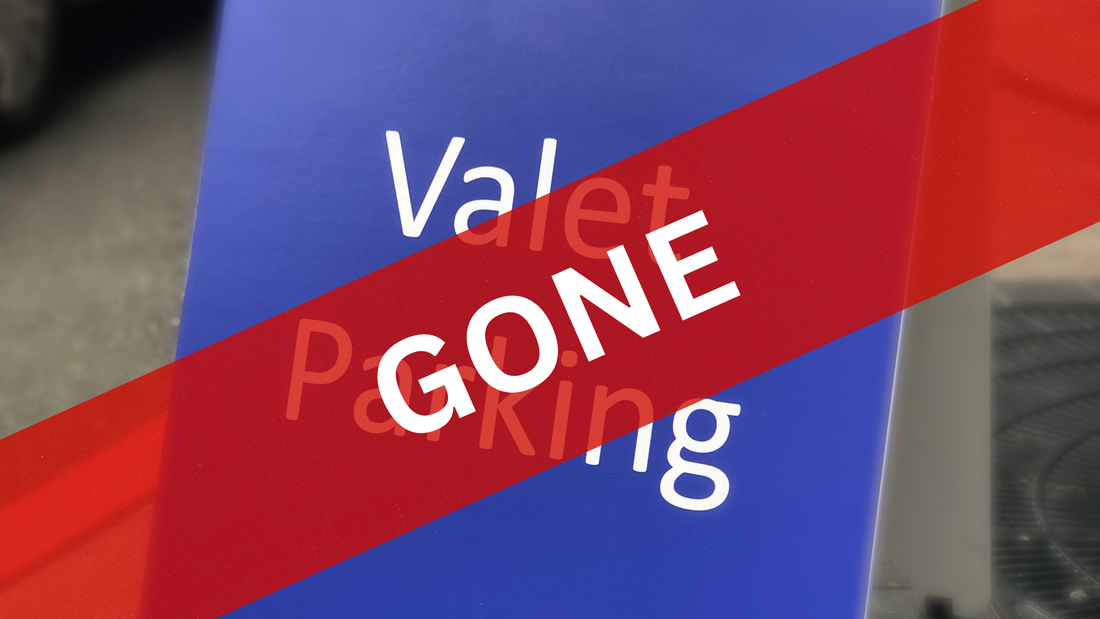|
Stories in the Springfield Business Journal and State Journal-Register have described staff cuts at Memorial Hospital, and that the Valet Parking Program is closed. Memorial’s decision is wrong. There are three ways to make money; one is to bring income; another is to plug the leaks in the operation which drain income. Read this and you will arrive at the third way to make money. Think of a hospital like a swimming pool; adding water only works if it stays in the pool. Cutting Valet Parking is the equivalent of cutting 8 holes in the pool’s lining! The Valet Parking Program produced material benefits which shield, the income-producing, aspects of the hospital’s operation. The State Journal- Register’s article included interviews with users of the valets who mentioned some of the issues described here. The following observations are the accumulation of my 17 years as a Medical Visit Companion through Senior Sidekicks. My work repeatedly took me through both Springfield hospitals. When valet parking was established, its founders may not have realized all the ways it would add value to Memorial. Now we will learn of these benefits by their absence. Drain One: Traffic cop needed. Many people converging on a small area can cause traffic jams and delays. Add infirm patients to the mix, and safety concerns rise. This situation reminds me of navigating O’Hare airport. O’Hare has officers; Memorial didn’t need them because the valets coordinated ramp traffic. The hospital will need to hire off-duty officers: an added cost. Drain Two: Missing point of contact. Valets performed that function for the entry area. They answered questions and gave directions: freeing other staff to do their jobs. Now, no one coordinates. The hospital will be forced to re-hire part of the former valets to monitor the area, another added cost. The valets knew who to call if a patient appeared to be in distress, a mishap, or a traffic accident. Who is in charge now? It’s another rehire cost. Drain Three: Rising liability costs. Injury prevention became one of the defacto tasks of the valets. They made sure the brakes are actually set on the wheelchair before the patient is transferred. Valets watched for trailing clothing which could get caught in the wheelchair wheels. Simple things like these prevented tip-outs and injuries. Now we will see how many incidents were previously prevented! Valets also assisted when a driver appeared to be untutored or infirm. (Now, who will help a 6 ft, 250 lb, post-op, man that is being assisted into a car; by a 5 ft, senior woman?) I predict that Memorial will see a rise in the rate of additional injuries to patients and their families. More incidents push the liability insurance through the roof; another unnecessary, cost. Drain Four: Loss of society causes loss of manageability. When the valets retrieved the cars, the family stayed with the patient. Patients can react to their procedures. I have observed some patients that seemed disoriented, looked exhausted, and sometimes shivered, even when the weather is warm. Occasionally, patients become agitated. Family knows the patient and how best to respond. Thus, a small situation didn’t become a big scene. Now these situations will drag other staff away to respond. The loss of valets forces the family away from the patient to hunt for the car. Drain Five: Delays and congestion in the reception area. Valets reserved a certain area of the lot for their cars which cut the response time. No valets=need for a designated area. Thus, a family must trek through the lot for the car. Since everyone must trek, moving patients through the transport area will slow down. This will lead to delays in getting patients out and crowding in the patient waiting area. How does Memorial plan to keep patients at a safe distance from each other to prevent a rise in infection rates? How does a rise in infection rate affect to the Memorial’s licensure? Not all costs come in money form. Drain Six - Part 1: Traffic jams due to delays. The family must leave their cars in the ramp to retrieve patients. A family might leave the car running, possibly with an open door. Families may not have set the parking brake even though there are two hills at either end of the ramp. Drain Six - Part 2; Preventable Issues; A. An unset parking brake leads to a rolling, unmanned car. B. A passing car clips an open door. C. An item left on the seat (cell phone) goes missing. D. Cars with two open doors (second one opened for the patient) take more space; crowding and already crowded drive. Do any of these scenarios remind you of O’Hare? No valets = more traffic jams and more accidents. Hired officers will be needed because the valets, who prevented them, are gone. Drain Seven: Accidents caused by family rying to avoid the parking ramp; Eventually, crowding and congestion will give rise the use of ramps or stairs by post-op patients; leading to incidents. Memorial’s front was never designed for frail patients to negotiate. The valets ensured that patients would leave the hospital quickly, and in cars. Now, some families might try to walk the (patient) to the parking lot! Another rise in liabilities=another rise in costs. Drain Eight - Part 1: Missing wheelchairs and accidents; The scarier scenario would be the patient, in a hospital wheelchair, piloted on their maiden voyage by family! Who will stop that untrained family, or prevent them from taking hospital wheelchairs? How would some of the patients make it all the way to the car without a wheelchair? Drain Eight - Part 2; How many times have you seen grocery store carts left beside the disability parking places? The whole Memorial lot becomes a defacto disability parking place. Like a grocery store, Memorial must hire staff to collect wheelchairs from the parking lot. Have you ever seen a homeless person who “adopted” a grocery cart? Does Memorial believe no one will “adopt” a lonely wheelchair from a parking lot? Add missing equipment to the other, above-listed costs incurred by removing the valets. Keeping the valets would have been cheaper for Memorial. Now operations will cost more because the valets are gone. There are actually three ways to make money, bring income, plug income holes and avoid making short-sighted decisions. Memorial has made a short-sighted decision by removing the valets. Valets don’t cost as much as they pay. What worries you about these cuts? Do you know someone who will have trouble getting care because they can’t access it? Do you have any ideas to solve this problem? We want to hear from you. Contact Senior Sidekicks, on the following form. We’ll gather your responses. Your feedback will guide our next steps.
0 Comments
|
Author "A Senior Moment" is written by Ms. Sara Lieber, owner of Senior Sidekicks. Ms. Lieber has over 30 years of experience in senior care. Archives
March 2024
Categories
All
|


 RSS Feed
RSS Feed